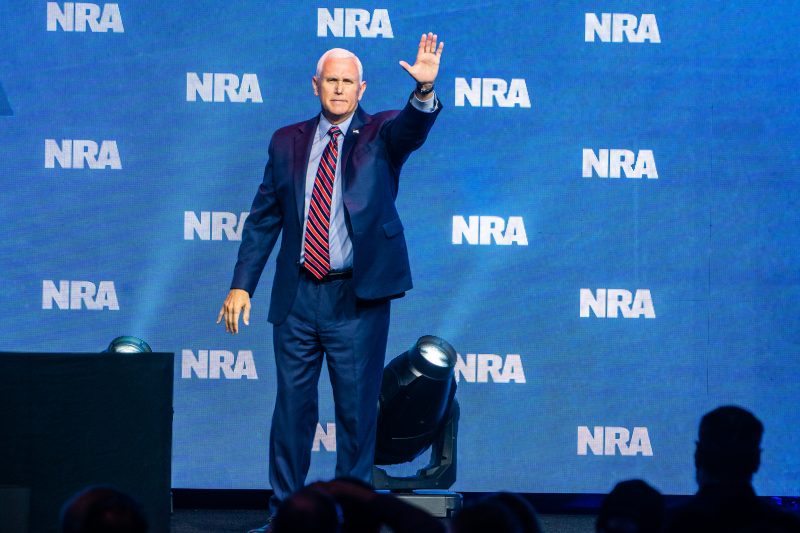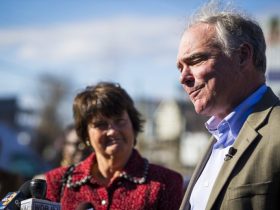Former vice president Mike Pence appears set to launch his 2024 campaign for president. If he does, he would be seeking the nomination of a party that has turned away from not just his brand of politics, but him personally.
The good news for Pence is that there is at least some precedent for someone as disliked as he is winning the Republican presidential nomination and the presidency. The bad news is that the precedent is Donald Trump, the man he has to get past and the very reason many Republicans soured on Pence in the first place.
Polling shows Pence would begin his 2024 campaign as a historically unpopular candidate.
Recent polls from Fox News, the Wall Street Journal and the Associated Press show only a slight majority of Republicans like him, and as many as 4 in 10 dislike him. This is members of his own party. (The turning point is clear: As Philip Bump noted, Pence’s favorable rating fell off a cliff after he declined to help Trump overturn the 2020 presidential election on Jan. 6, 2021, and it hasn’t recovered.)
Because of this intraparty resistance, Pence’s overall numbers are poor — historically poor, in fact, for a major presidential candidate. The Journal poll shows 60 percent of Americans overall have an unfavorable view of Pence, compared to 29 percent favorable. The other polls are slightly better for him.
The Washington Post in 2016 reviewed polling numbers for presidential nominees and other significant candidates dating back 30 years. The only ones who have cracked 60 percent unfavorable? Former Ku Klux Klan leader David Duke (69 percent unfavorable) in 1992, Pat Buchanan (60 percent) in 2000, Newt Gingrich (63 percent) in 2012 and Trump (67 percent) in 2016.
You’ll note, of course, that one of those candidates wound up being quite successful.
Trump actually had even worse numbers before launching his campaign. A May 2015 Washington Post-ABC News poll showed 71 percent of Americans and 65 percent of Republicans had an unfavorable view of him. Trump’s unfavorable number among Republicans was a whopping 42 points higher than his favorable number.
But shortly after his campaign launch, the same poll quickly showed a reversal. Suddenly, 57 percent of Republicans liked Trump, while 40 percent disliked him.
Which is about where Pence would start his 2024 campaign.
As Bump noted, we should hardly expect such a reversal for Pence when he launches his campaign. Trump benefited from being a well-known but largely undefined political entity. So when he launched his campaign on a theme of harsh opposition to illegal immigration, a large segment of the GOP ate it up. Over time, he convinced most of the remaining holdouts.
Pence, by contrast, has a well-established political brand that he apparently won’t be abandoning. He’ll probably run a traditional, conservative, Reagan Republican campaign focused on ideas that have become less popular on the right, including supporting Ukraine, entitlement reform and free trade.
This is, in some ways, the campaign Pence has to run, because anything else would be a major departure for him. But the gamble seems to be that the party might ultimately return to its foundations for whatever reason. That would necessitate a large-scale Republican Party break with Trump and Trumpism. Pence’s bad numbers can’t really improve unless Trump’s numbers revert.
For now, Pence is remarkably off the radar for a former vice president, and it’s not just the image numbers. While a slight majority of Republicans still like him, a recent CBS News poll showed 57 percent of Republicans said they would not consider voting for him. That was worse only than more staunch Trump critics Chris Christie and Asa Hutchinson. And a recent Monmouth University poll showed nearly half of Republicans (47 percent) said they would not be satisfied with Pence as their nominee. More voters said they would be satisfied with eight other Republicans tested; only Christie, Liz Cheney and Ye (formerly known as Kanye West) scored lower by this measure.
Not where you want to be starting. But after 2016, never say never.








